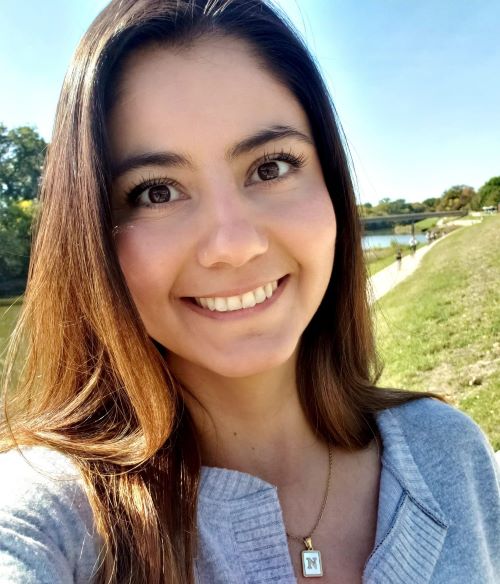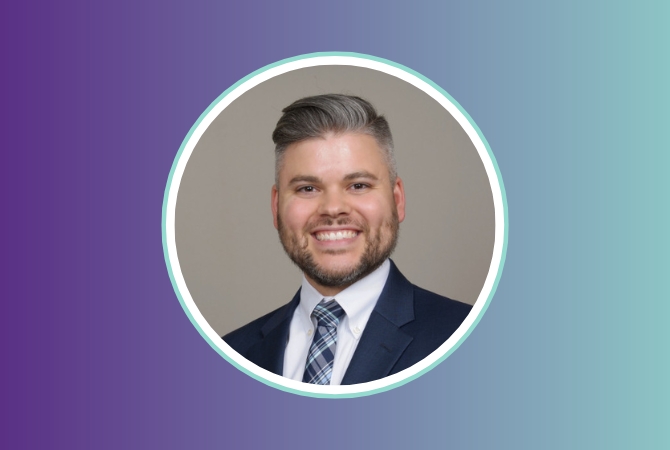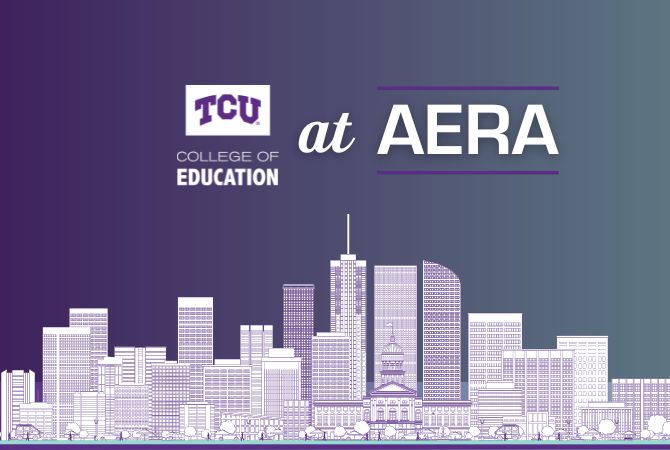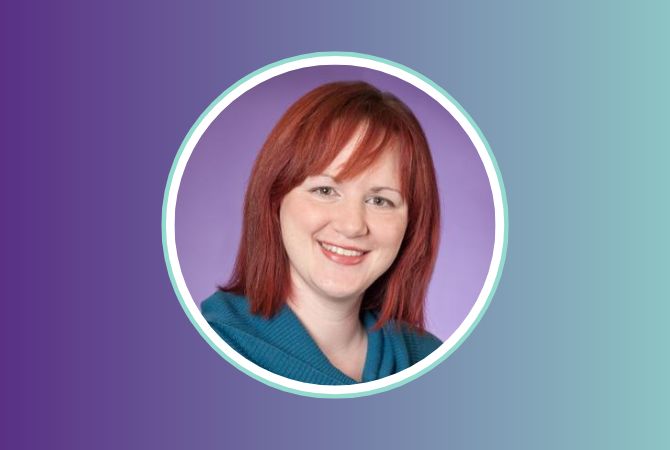TCU strives to prepare global citizens, an endeavor that extends beyond the students
on campus. Nayeli Aréchiga, a doctoral student at University of Guadalajara, spent
two months at TCU as part of her coursework.
“I’m really enjoying what I came here for: to learn, to meet people,” Aréchiga explained. “I’ve talked with students with similar experiences in research, visited labs and even attended classes.”
Aréchiga has a bachelor’s and master’s and is now pursuing a doctoral degree, all in psychology. One of the biggest takeaways from her time at TCU was the difference between research practices in her home country, Mexico and the United States.
“The United States is a developed country, and Mexico is not. I came here without knowing what to expect. You have a lot of funding for research, and in Mexico we don’t have that,” said Aréchiga. “Here you have culture for collaborative work, and it’s something natural. I’m learning about that too. I see teachers support their students, researchers supporting each other and their students. We have to learn more about that, it’s so great,” she said.
Aréchiga’s research focuses on applied behavioral analysis as it relates to families with children who exhibit disruptive behaviors. Her interest in child psychology stems from working with children in orphanages early in her career. She felt a sense of responsibility to help, but needed better tools to make it happen.
“In Mexico, we don’t have the institutions we need to give kids early interventions, or even to diagnose some of these kids. Here in the U.S., you have institutions to assist with this and some is even covered by insurance,” said Aréchiga. “I’m trying to learn about these procedures to help provide more services in Mexico. That’s why I want to work with caregivers and train them in procedures to apply in their own settings. It’s a way to have a bigger impact.”
Aréchiga originally interviewed with TCU faculty member Michael Faggella-Luby, professor of special education and director of the Alice Neeley Special Education Research and Service (ANSERS) Institute.
“Special education is a huge field, and many people don’t realize it,” said Faggella-Luby. “Having a visiting scholar like Nayeli benefits our students and the community by providing a TCU-affiliated resource in the areas of working with children with significant behavioral disorders, working with families to support the unique needs of their children and helping educators understand how to handle these needs in the classroom.”
Aréchiga collaborated with groups both on and off-campus, like Cook Children’s, Karyn Purvis Institute of Child Development and Miller Speech & Hearing clinic, among others.
“She was a global bridge between behavior in special education at TCU and the community,” said Faggella-Luby. “She brought an international perspective because disability is a worldwide topic.”
Now back in Mexico, Aréchiga continues writing her dissertation and maps out the final semester of her doctoral program, which concludes in January. She plans to present to her lab colleagues about the great experience and everything she learned in her time at TCU.


